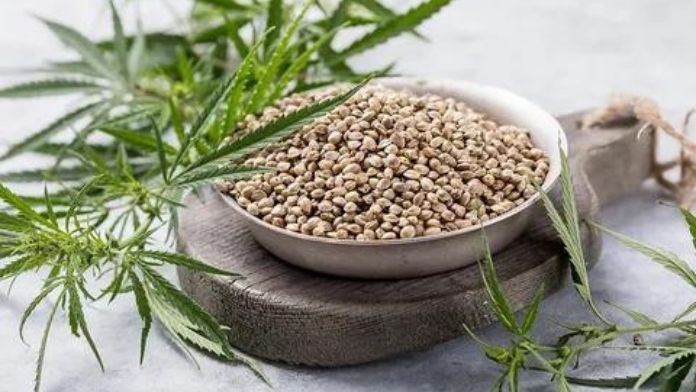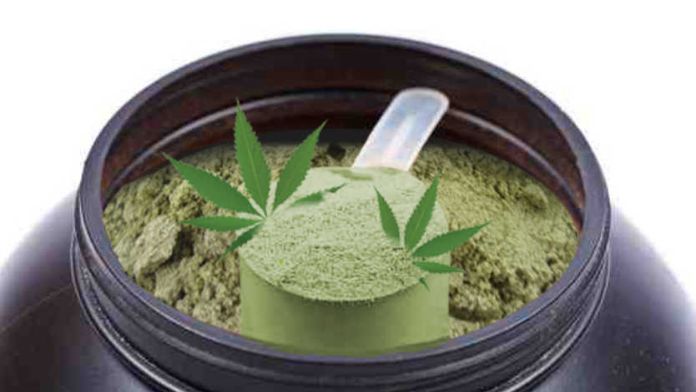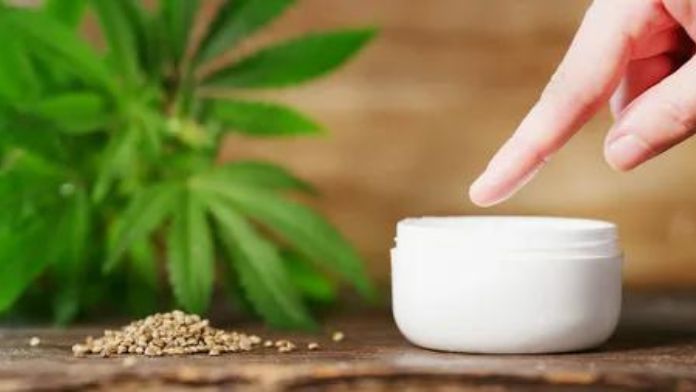Hemp seed allergies have become a topic of interest as hemp-based products gain popularity. Despite the increasing awareness, several misconceptions surround hemp seed allergies that need debunking.
What Causes Hemp Seed Allergies
Hemp seed allergies are triggered by proteins in hemp seeds, primarily edestin and albumin. These proteins resemble allergenic proteins in tree nuts and seeds, leading to cross-reactivity. Individuals with pre-existing allergies to nuts may be more susceptible to hemp seed allergies. Additionally, the heat-stable nature of hemp proteins during cooking and processing can enhance allergenicity. Cross-contamination in facilities are hemp seeds an allergen handle both hemp and allergenic seeds also poses a risk.
While hemp seeds offer nutritional benefits, awareness of potential allergenicity is crucial. Individuals with nut allergies should exercise caution, reading labels and consulting allergists to navigate potential cross-reactivity and prevent adverse reactions. Understanding the underlying causes enables informed choices, promoting safe consumption for those without allergies.
Common Signs And Symptoms

Hemp seeds are generally well-tolerated, but allergic reactions can occur. Common signs and symptoms of a hemp seed allergy include itching, swelling, hives, and digestive issues such as nausea or abdominal pain. In severe cases, anaphylaxis may occur, leading to difficulty breathing and a drop in blood pressure.
It’s important to seek medical attention if any allergic reactions are observed. Individuals with known allergies to cannabis or related plants should exercise caution and consult a healthcare professional before consuming hemp seeds. Always read food labels and be aware of potential allergens to ensure a safe and healthy experience.
Debunking Myths Surrounding Hemp Seed Allergies
Contrary to popular belief, hemp seed allergies are exceedingly rare. Misconceptions abound regarding the risk of allergic reactions to hemp seeds, often stemming from their association with how common is hemp allergy cannabis plant. However, hemp seeds typically pose minimal allergenic potential. Rigorous studies reveal are hemp seeds an allergen true hemp seed allergies are scarce, and cross-reactivity with marijuana is uncommon.
Most reported cases of hemp-related allergies involve contamination or misidentification. It’s essential to distinguish between hemp seeds and other allergenic seeds, fostering accurate information dissemination. Dispelling these myths ensures individuals can confidently enjoy the nutritional benefits of hemp seeds without unnecessary concern for allergic reactions.
Managing Hemp Seed Allergies

Managing hemp seed allergies requires vigilance in navigating food choices. Individuals with hemp seed allergies must scrutinize labels for hidden sources, as hemp products are increasingly popular in various foods. Prioritize open communication with restaurants and food manufacturers to ensure hemp seed allergy cross reactivity absence of hemp seeds in dishes.
In cases of severe allergies, carry an epinephrine auto-injector and educate those around you about potential risks. Stay informed about cross-contamination risks and be cautious when trying new products. Consult with a healthcare professional for personalized advice, and consider wearing a medical alert bracelet. Diligent management empowers individuals to enjoy a healthy lifestyle while minimizing hemp seed allergy treatment risks associated with hemp seed allergies.
The Rise Of Hemp-Based Products
The Rise of Hemp-Based Products marks a revolutionary era in consumer goods. Hemp, a versatile and sustainable plant, has become the cornerstone of a burgeoning industry. From textiles to skincare and nutrition, innovative entrepreneurs are harnessing its potential. With increased awareness of environmental impact, hemp’s eco-friendly nature and minimal water requirements make hemp seed allergy symptoms an attractive choice.
Its non-psychoactive cousin, CBD, has stormed the wellness market, offering a natural alternative for various ailments. As regulations evolve, hemp’s popularity continues to soar, paving the way for a greener, more diverse marketplace where the benefits of this ancient plant are woven into modern lifestyles.
Navigating Hemp-Related Labels

Navigating Hemp-Related Labels can be a nuanced journey for consumers seeking clarity. As hemp seeds allergy nuts hemp industry expands, understanding labels is crucial. Look for ‘Full Spectrum’ for a complete hemp extract containing cannabinoids and terpenes. ‘Broad Spectrum’ offers similar benefits without THC. ‘CBD Isolate’ contains pure cannabidiol.
Verify third-party testing for transparency. ‘Organic’ indicates pesticide-free cultivation. Ensure ‘Non-GMO’ for genetically unmodified products. ‘Hemp Seed Oil’ differs from CBD oil, derived from seeds, not the plant. ‘THC-Free’ confirms non-psychoactive content. Stay informed on dosage with ‘CBD per serving’ details. Unraveling hemp labels empowers informed choices in this burgeoning market.
The Connection Between Hemp And Pollen Allergies
The relationship between hemp and pollen allergies lies in the airborne pollen released by male hemp plants during their flowering phase. Hemp, a variety of the Cannabis sativa plant, produces pollen are hemp seeds an allergen can trigger allergic reactions in susceptible individuals. This pollen contains proteins similar to those found in other allergenic plants, leading to cross-reactivity.
Individuals with pollen allergies, especially those sensitive to grasses and weeds, may experience symptoms such as sneezing, itchy eyes, and respiratory distress when exposed to hemp pollen. While hemp is cultivated for various purposes, including industrial and medicinal uses, allergy-prone individuals must be aware of potential sensitivities. Managing exposure and seeking medical advice can help mitigate hemp seed allergy baby impact of hemp pollen allergies on respiratory health.
Hemp Allergies In Children
Hemp allergies in children are rare but possible. Some may experience skin reactions like rashes, itching, or redness after contact. Inhaling hemp pollen may trigger respiratory symptoms such as sneezing or congestion. Severe cases may involve digestive issues like nausea or abdominal pain. Parents must recognize symptoms promptly and consult a healthcare professional for accurate diagnosis.
While hemp allergies are uncommon, vigilance is necessary, especially considering hemp allergy test increasing use of hemp-derived products. Children with known allergies or sensitivities should be closely monitored when exposed to hemp, and alternative options should be considered in consultation with a healthcare provider.
Debunking Misinformation Online

Hemp seeds are not a common allergen. Despite misinformation online, scientific evidence indicates are hemp seeds an allergen hemp seeds are generally well-tolerated and rarely cause allergic reactions. It’s crucial to debunk myths and rely on credible sources when disseminating information about food allergies.
Misleading claims can contribute to unnecessary fear and confusion. To promote accurate knowledge, consult reputable sources such as scientific studies and health organizations. Understanding the facts surrounding hemp seeds and allergies helps foster informed decision-making and ensures individuals can confidently incorporate this nutritious food into their diets without unwarranted concerns.
Personal Experiences With Hemp Allergies
Hemp seeds are generally well-tolerated, but individual responses vary. Some people may experience allergic reactions to hemp seeds, although such cases are rare. Personal experiences with hemp allergies are limited, with symptoms ranging from mild to severe, including itching, hives, and, in rare cases, anaphylaxis.
It’s crucial to note hemp allergy rash cross-reactivity with other seeds or nuts is possible, and individuals with known seed allergies should exercise caution. While hemp allergies are uncommon, anyone considering incorporating hemp seeds into their diet should start with a small amount and monitor for adverse reactions. Consulting with a healthcare professional is advisable for those with known allergies or concerns about potential sensitivities.
Conclusion
While hemp seeds are generally well-tolerated by many individuals and offer numerous health benefits, they can potentially pose allergenic risks for some people. Allergies to hemp seeds are relatively rare, but individuals with sensitivities to cannabis-related products or those prone to seed allergies should exercise caution. It’s essential to be aware of any adverse reactions and consult with a healthcare professional if concerns arise. As with any food, moderation and attentive monitoring of individual responses are key. While hemp seeds are a nutritious addition to many diets, those with pre-existing allergies or concerns should approach their consumption judiciously and seek guidance to ensure a safe and enjoyable dietary experience.
FAQ
Can You Be Allergic To Hemp Seeds?
That is to say, hemp seeds. If you are allergic to hemp seeds, you are most likely to be allergic to hemp seed-based products. These include hemp hearts, powder, and secondary food products such as hemp milk. Hemp seed oil, in contrast, is highly unlikely to be an allergen. This is because hemp oil is refined to be 100% fat.
Can Hemp Allergy Symptoms Be Controlled Naturally?
It is possible to control or reduce hemp allergy symptoms such as Irritation, hives, and conjunctivitis both naturally and with medication. For instance, ice packs are a simple, natural solution to alleviate inflammation on the skin as well as pink eye.
Can Hemp Pollen Cause Asthma And Conjunctivitis?
The inhalation of hemp pollen can also cause symptoms of asthma and conjunctivitis. Though every human body reacts differently to an allergen, based on the available evidence, some common symptoms of a hemp allergy include Irritation: itchiness, swelling, and puffiness of the eyes and the skin in general.
How Does A Hemp Allergy Test Work?
A hemp allergy test is often dependent on skin testing. A skin prick test determines if a person is allergic to one or more specific allergens. If the body finds sensitivity, the immune system produces an antibody called immunoglobulin E (IgE). These IgE antibodies are unique to each allergen.


[…] and full of essential elements, hemp seeds are a superfood. Because they contain a lot of omega-3 and omega-6 fatty acids, they reduce […]